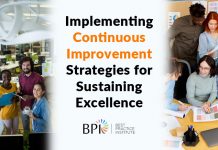Would you like to lead like leaders at a “Great Places to Work” organization? Every year, there are countless company rankings in a number of different categories, ranging from “Happiest Workplace” to “Best Workplace for Women”. GlassDoor recently published the list of Best Places to Work (2016) after tallying surveys from 1.6 million employees. The companies listed in the top 10 are not only very profitable, they’re also extremely innovative, attract the best talent, and have lower staff turnover than their industry peers. This is probably why many of them keep re-appearing at the top of the rankings.
Are you leading like one of the “Great Places to Work”? There are a variety of ways that you can start implementing excellence in your workplace and put yourself on the way to truly being a great place to work.
Here are a few actions you can take, inspired by the workplaces that employees love to work for, thanks to their leadership:
1. Strong talent management.
These companies all appreciate that their employees are a high-value corporate asset, and, thus, finding, nurturing, and appreciating talent is fundamental to their business rationale. Facebook coined the phrase ‘acqui-hiring’—which involves the acquisition of a business as much for the talent within it as the company itself.
Mark Levy’s title at Airbnb is Global Head of Employee Experiences, which epitomizes this shift in culture. Top companies are now actively creating workplace experiences that enable employees, leading to enhanced productivity and retention. Engaging employees is a key part of these efforts. Given that Gallup polls indicate that 51 percent of U.S. employees are not engaged in their work, many companies are failing in this area.
The companies with strong leadership talk about inspiring their employees and creating a working environment where talent thrives. Beyond that, many companies with great leaders at the helm offer outstanding perks, ranging from unlimited sick days at Facebook to matching 401K, excellent healthcare, Stock Options, Gym Membership Credit, PTO, a stocked kitchen, and free lunches at Zillow. Many companies that foster employee engagement have weekly social functions, yoga lessons, and exercise tracks and gyms. Airbnb even allows staff to bring their dogs to work.
2. A mission-driven culture that’s open and transparent.
Great companies understand that they should treat their staff as they’d like them to treat their customers. Perks are good, but top talent wants more than just perks. Businesses with missions and values that aren’t found on yellowing paper on noticeboards are the ones that truly translate the company’s vision into action in the workplace.
Airbnb designs its culture around its mission as a travel company. They take the approach that staff should feel like guests, so the workplace is an extension of a home, with a library, a nerd cave, recreation areas, and more. Employees can work at any station in the building—either alone, or they can congregate with peers of their choosing.
Communicating and entrenching the company mission into the culture is key, and Facebook has an extended six-week onboarding boot-camp for new staff to become completely acclimatized. Airbnb has meetings every other Tuesday, which are streamed round the world. Google, as a company with a mission to connect the world, prides itself on being highly interactive. Guidewire describes its culture as being meritocratic, which respects the power of smart, motivated people to find the best possible way to do their jobs. Most of these top companies stress a healthy work/life balance, are family orientated, and focus on being open and honest.
3. The corporate structure is inclusive and collaborative.
Companies that embrace the fact that the balance of power has shifted dramatically from the top-down, command-and-control model to the need for collaborative, values-driven work are the ones where top talent want to work. Millennials, in particular, are looking for work that has impact and meaning, as well as a workplace that fosters personal growth. Facebook has ‘Hackamonth’, which embodies this self-directed internal movement by letting staff choose their next assignment and experiment with different areas of work.
When a corporate structure minimizes red-tape and rigidity, employees are encouraged to make mistakes, rather than being too timid and missing opportunities. This type of dynamic structure allowed Facebook to make a 180-degree shift rapidly when it became clear that hand-held devices were the future.
This high level of autonomy is also found at HubSpot where there isn’t a laid down process per customer. As Jeremy Crane, VP Products, explains, every small development team has a goal, and they determine how to get from A to B and define their own milestones. It’s this type of organizational structure—so seldom found in large corporations—that is attractive to many employees.
4. Inspirational leadership .
According to a Talented Heads survey, Millennials crave inspiring leadership and positive morale in their work. At Bain & Company, two fundamentally different leadership skill-sets center on performance and inspiration. Mark Howitch, partner, explains that the performance skills are more traditional and easy to articulate. The need to inspire, motivate, create engagement, and connect on a meaningful level is more complex and, yet, equally vital. These skills, usually dubbed ‘soft skills’, have been underweighted, and top companies are investing in proactive efforts to build them. Leaders are encouraged to serve as role models, to invest in the growth of others, and to inspire their employees in an authentic manner.
Each of these skills are complementary and provide a holistic approach to engaging top talent. With even partial success in all of these areas, your company will be well on its way to receiving a higher level of positive feedback from employee surveys.










